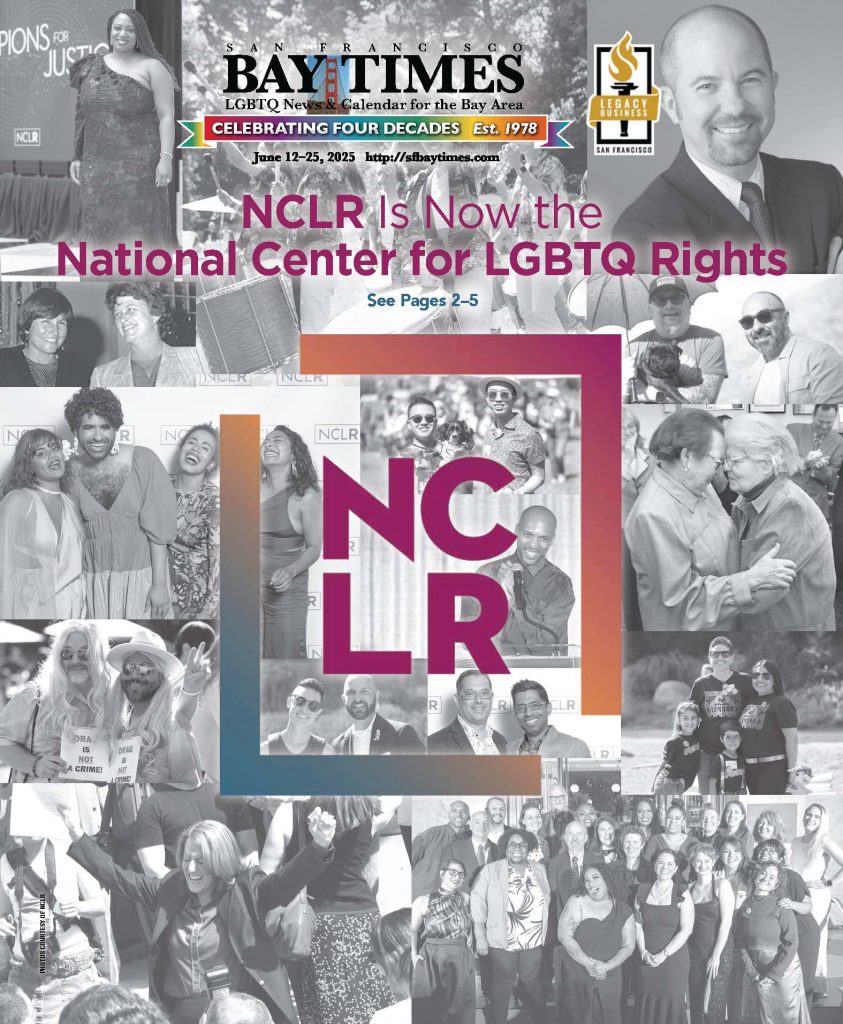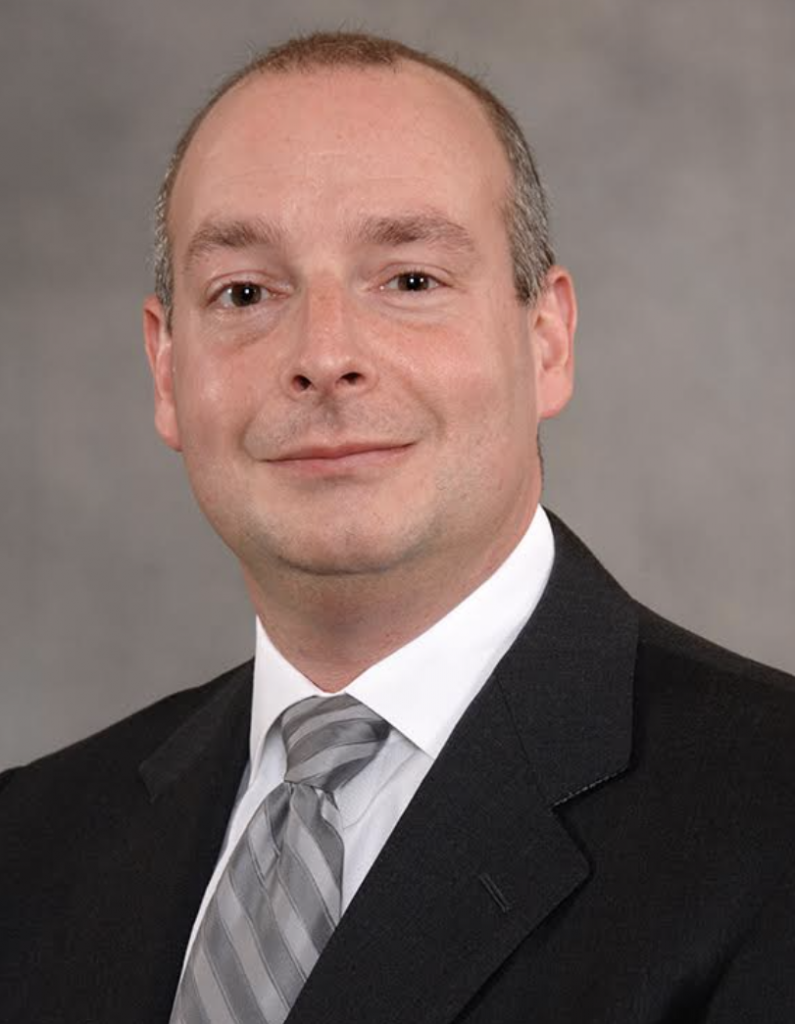
Photos courtesy of NCLR
Special thanks to Jennifer Bing and Malkia Hutchinson
After nearly 50 years as a leading LGBTQ civil rights organization, the National Center for Lesbian Rights (NCLR) announced this week that it is changing its name to the National Center for LGBTQ Rights (NCLR) to better reflect its longtime commitment to advocacy on behalf of the full LGBTQ community.

NCLR was founded in 1977 by Donna Hitchens, who went on to become the first openly lesbian judge elected to the bench in the United States, and Roberta Achtenberg, the first openly LGBTQ person appointed to a position requiring U.S. Senate confirmation. NCLR’s original name reflected the fact that it was the first national LGBTQ organization to be founded by women. The organization was revolutionary because it recognized that lesbian women faced unique legal challenges that were not being addressed by existing gay rights organizations, which tended to focus on issues more relevant to gay men. By creating specialized legal advocacy for lesbians, particularly around family law issues, NCLR helped establish new areas of civil rights law that would benefit the entire LGBTQ community.


Hitchens’ and Achtenberg’s initial goal was to provide legal support to lesbian mothers fearful of losing custody of their children after coming out, which very quickly expanded to advocating on behalf of gay parents living with HIV, transgender parents, asylum seekers, and young people seeking justice in schools and on the playing field.
Since its founding, NCLR has become a leading national impact litigation organization, taking on Prop 8, winning marriage equality in California and nationally, defending transgender servicemembers, fighting for health care for LGBTQ people, and defending laws protecting LGBTQ youth from conversion therapy.

“NCLR’s feminist roots have always called on us to support and amplify the most underrepresented communities and those often left out of the mainstream movements,” Imani Rupert-Gordon, President of NCLR, told the San Francisco Bay Times. “At a time when the LGBTQ community is facing increasing attacks, it is critical that we are crystal clear that we represent the entire community. Without losing touch with our roots, NCLR will continue its nearly 50-year commitment to protecting the most vulnerable members of our community, forging new partnerships, and working toward a day when every LGBTQ person can live with full dignity, equality, and freedom under the law.”

48 Years of LGBTQ Rights
San Francisco is the birthplace of so much of the LGBTQ movement, and NCLR was the first national legal organization rooted in our region. For decades, NCLR curated a community of feminists—many of them lesbians—who understood the importance of inclusion, collaboration, and focusing our fight for equity on those most vulnerable to oppressive systems.
When NCLR was founded, the women’s movement avoided issues impacting lesbians. Dubbed the “Lavender Menace,” queer women were seen as a threat to the goals set forth by heterosexual feminists like Betty Friedan and organizations like The National Organization of Women (NOW), who eschewed ideas of queer liberation in favor of expanding rights for women willing to align themselves with a heteronormative worldview.
At the same time, the gay rights movement, focused on morality laws and the AIDS crisis affecting gay men, did not consider “women’s” issues like child custody and caregiving to be of much importance. As a result, like many times before and since, lesbians took care of themselves, and, in turn, so many others. NCLR was born of this exclusion, and from day one, they’ve committed to setting a better example, expanding their vision, and their organization, to include those most in need of legal support.


This work has always been unique. NCLR is consistently expanding their programming to meet the moment. In 1994, when the Clinton Administration affirmed that LGBTQ foreign nationals facing discrimination at home could seek asylum in the United States, NCLR was the first to create an Immigration and Asylum program. Now called Hogar (Home), the project has been operating for more than 30 years, helping hundreds of LGBTQ asylum seekers and their families find a safe home within our borders.
After successfully drafting and helping pass legislation to ban conversion therapy for LGBTQ minors in California in 2012, NCLR in 2014 created Born Perfect, a first in the nation program to ban the dangerous and ineffective practice of conversion therapy nationwide. After more than 10 years, Born Perfect’s efforts have been successful in 22 states, and have built a network of conversion therapy survivors working together to end the practice for good.
NCLR’s litigation team takes the cases many will not, starting with lesbian moms fighting for custody in the 1970s and 1980s and expanding to child custody rights for transgender parents, same-sex second parent adoption, workplace discrimination, and spousal benefits after a wrongful death. Outside of litigation, NCLR has maintained a strategy based on coalition building, creating policy programs focused on reproductive rights, economic justice, common ground with religious organizations, and LGBTQ equity in education.
There are big wins: two same-sex parents on a birth certificate; marriage equity in California and then the United States; NCAA policies supporting LGBTQ athletes; representing the first transgender parent in a custody case; stopping Don’t Say Gay policies in states like Arizona, South Carolina, and Florida; and so much more.
And today, suing the Trump administration four times since January—and counting.

LGBTQ Starts With Lesbian
The lesbian community has always been special: fiercely loyal, intensely interconnected, and always ready to pull together to protect, support, and fight for the community. Being the National Center for Lesbian Rights at a time when queer women needed it most was a great honor for the organization. Women have fought for centuries to be prioritized and NCLR did just that. The response was great: a family of supporters for meaningful, essential work.
NCLR remains committed to centering issues that matter most to families, and to prioritizing queer women; to upholding and honoring lesbian history while ensuring that, like the founders felt almost 50 years ago, not a single member of the LGBTQ community will feel unwelcome, unseen, or unsupported in NCLR’s work.
“Being the executive director of the National Center for Lesbian Rights from 1996–2018 will continue to be one of my greatest life honors,” Kate Kendell told the San Francisco Bay Times. “The work of NCLR impacts every single member of the LGBTQ community from employment and housing protections, the right to marry and create a family, to immigrating and creating a new home in the United States without violence and oppression. I could not be prouder to now be the former executive director of the National Center for LGBTQ Rights! I am so proud to be a part of an organization and a community that actively responds to the needs of its constituents, declaring loudly and proudly what has been true since 1977—that NCLR is for everyone!”


The Fight of Our Lives
NCLR is clear in the vision for this name change, wanting everyone to know that the breadth and scope of the work have been inclusive from the very beginning, and that every LGBTQ community member is welcome.
“This change reflects what has always been true: NCLR works tirelessly to defend, protect, and advance the entire LGBTQ community,” NCLR Legal Director Shannon Minter told the San Francisco Bay Times. “Since this administration took office, NCLR has filed four lawsuits challenging discriminatory and unconstitutional executive orders, and we are preparing for additional litigation.”
Minter added, “I have devoted my more than 30-year legal career to working at NCLR, an organization committed to putting the community first, supporting LGBTQ people and their families, and using the power of the courts to fight for a better and more just world. I am excited that our new name captures and expands that spirit and vision.”
While the mission is not changing, the newly renamed organization is excited to bring forward new and innovative ways to honor their history, and the feminist approach to justice they are so proud of to a bigger audience.
LGBTQ people are in the fight for our lives right now, watching as so much progress is being questioned and challenged. But NCLR isn’t going anywhere. NCLR and its movement partners are working tirelessly to fight back—in the courts and in the streets.
This moment is calling all to act, to be brave and resilient, and to dig into our collective history of resistance, our expertise in building community and family from the ground up, and for doing it all with boundless queer joy. The National Center for LGBTQ Rights is meeting this moment, and cannot wait to bring you along!
NCLR (National Center for LGBTQ Rights
Published on June 12, 2025
Recent Comments